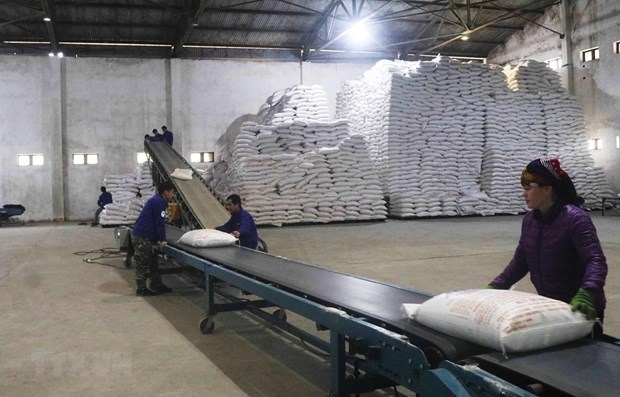Ministry to boost trade defence measures in line with int’l commitments
Ministry to boost trade defence measures in line with int’l commitments
As trade protectionism is forecast to grow further around the world in 2021, the Ministry of Industry and Trade (MoIT) is set to step up trade defence measures in accordance with international law and commitments.

Sugar bags are loaded into a warehouse of the Cao Bang sugar refinery in Cao Bang province - Photo: VNA
|
Le Trieu Dung, Director of the MoIT’s Trade Remedies Authority of Vietnam (TRAV), said the ministry will accelerate current trade remedy probes into imports so as to take timely action to protect domestic manufacturers.
An early warning system on trade remedy risks for certain exports will be completed this year so that enterprises can gear themselves up early.
Additionally, MoIT will coordinate with relevant agencies to boost action against origin fraud and illegal transhipments aimed at evading trade remedies, while working to improve the trade remedy-related capacity of domestic businesses and State agencies, Dung said.
Since becoming a member of the WTO and free trade agreements (FTAs), Vietnam has opened its market and slashed import tariffs on a large number of goods, exposing its businesses to strong competition from imports.
Trade defence measures, which are policy tools permitted by the WTO, he said, have an important role to play in ensuring effective economic integration and minimising its adverse impact on businesses.
Between 2016 and 2020, MoIT launched 13 trade remedy investigations into imported commodities such as DAP fertiliser, monosodium glutamate (MSG), steel, and BOPP film.
Remedies applied so far have proved effective in addressing losses caused by surges of imports and protecting domestic producers, according to Dung.
He pointed out that State agencies and some enterprises have worked to promote their trade remedy-related capacity, but many shortcomings remain, so a new policy and legal framework that matches provisions in the FTAs Vietnam has joined is needed.
The issue of trade defence is stipulated in Chapter 5 of the Law on Foreign Trade Management, but one chapter cannot provide all detailed regulations. This has led to certain limits in the investigation and implementation of trade defence measures.
New issues frequently emerge in the field, which also require that relevant State agencies and businesses have in-depth knowledge about law and finance. The complex developments of COVID-19 last year also hampered support to enterprises, he acknowledged.
Meanwhile, trade remedy probes targeting Vietnamese exports in foreign markets also increased considerably in 2020 and are projected to rise even higher this year.
Given this, he said, MoIT has recommended local businesses equip themselves with knowledge on trade remedy regulations, particularly those of Vietnam and export markets, while readying resources to cope with possible foreign trade remedies.
They should also keep a close watch on the import of related products so as to detect any signs of dumping or subsidies in a timely manner and prevent losses for domestic manufacturers.



















